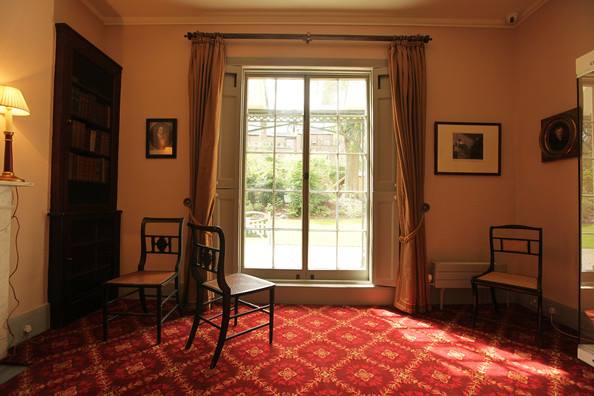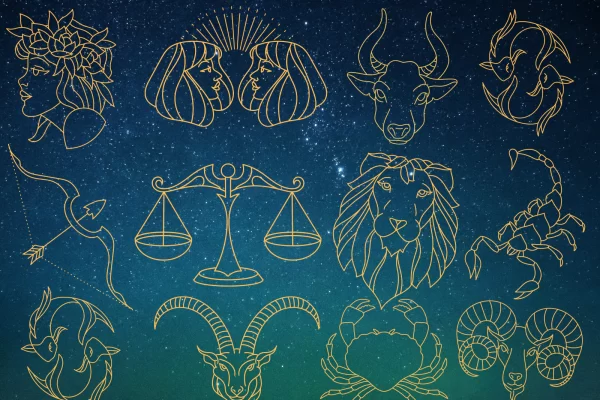Letters to Fanny Brawne: thinking about Poetry and Human Race
Keats speaks about happiness and his relation with Human Race in some letters written to Fanny Brawne. Happiness is something that doesn’t belong to him and he feels the word hostile. But when he starts writing, excitement rises and a condition of oblivion and relief magically puts him in harmony with the world.
Keats’s disturbed mood does not enable him to live life to the fullest and during the periods of dejection he thinks about Happiness[1], a happiness that he feels he never reaches fully if not immediately «(…)nothing startles me beyond the moment (..)»[2]. But happiness arrives one year later when he meets Fanny Brawne. He falls in love passionately but his mood doesn’t pacify. Happiness will have a new face and it will not put energy aside not even during his illness. 
John Keats always had a troubled mood, his Mind was never able to abandon itself entirely and happily, if not with Fanny Brawne. Since their encounter, a period of new meditations, new worries and new pleasures starts for Keats: she reveals him the world of Love. Letters to Fanny are gentle and rich of care by both sides. In each letter, Keats gives Fanny information about his state of health, suggests her not catch cold and constantly keeps up how she spends the time. But the seeds of jealousy is lurking and Keats is worried by new troubles that cause him a strong physical and moral tiredness. Because of his illness, Keats is far away, in Italy, and cannot enjoy Fanny’s company: a strong feeling of envy pervades Keats’s soul when Fanny tells him about her walks and about people who go with her.
It is from some letters to Fanny that reveal Keats’s uncomfortable attitude towards Human Race. Keats takes shelter only in Poetry that is oblivion and freedom. In the last letter he wrote to Fanny he will say: «I am sickened at the brute world which you are smiling with. I hate men, and women more.(…)I wish you could infuse a little confidence of human nature into my heart. I cannot muster any — the world is too brutal for me — I am glad there is such a thing as the grave — I am sure I shall never have any rest till I get there».[3]
But these are not the words of a dying person who is losing interest in life; Keats always hated salons, convention, formalism and even before meeting Fanny, in a letter to his brothers, George and Tom, dated December 1817, he talks about his thoughts when he met Horace Smith’s brothers at lunch: «these men say things which make one start, without making one feel, they are[Pg 48] all alike; their manners are alike; they all know fashionables; they have all a mannerism in their very eating and drinking, in their mere handling a Decanter. They talked of Kean and his low company—would I were with that company instead of yours said I to myself! I know such like acquaintance will never do for me … » [4].
So, for whom does writes John Keats? Who are the addressees of his poetries? In a letter of reply to Reynolds dated 9 th April 1818, the poet argues why his friends did not like to his preface to the Endymion. He invites Reynolds to re-read every single phrase from different perspective, most of all not focused on the Public. Keats does not want to submit himself to the public, he does not want to write for it, he considers it an enemy, he feels it hostile. He does not want to bow to the Crowd and he hates to being humble with it: «I never wrote one single Line of Poetry with the least Shadow of public thought» [5] .
Keats writes for himself, for the temporary pleasure he receives from it. But are we sure that it is true? Keats is conflicted but he certainly wants to «have an effect» and he openly says it also in a letter to his friend Hydon dated 22nd December 1818: «my general Life in Society is silence. I feel in myself all the vices of a Poet, irritability, love of effect and admiration—and influenced by such devils I may at times say more ridiculous things than I am aware of—(…) I am certainly more for greatness in a shade than in the open day—I am speaking as a mortal—I should say I value more the privilege of seeing great things in loneliness than the fame of a Prophet.Yet here I am sinning»[6].
Keats does not publish for money, he would never publish for it. He loves Human Nature but he does not like Men: he would simply write works to honor Men and writes something that Men cannot knead. Keats says to publish only for need. And after all, why not believe him? The lack of money and debts, have always tormented his life and not only. To his economic penalties were added also those of his brother George, who, in spite of moving abroad to improve economically, was turned hopeless and more got into debts more than before…
Our journey re-discovering John Keats goes on and brings us in 2009, when director Jane Campion makes the film Bright Star, about the love story between Keats and Fanny Brawne.
[1] Some words in this article (in capital letters) are the same that Keats wrote in his letters to underline the importance they had in his Thought.
[2] Letter to Bailey 22nd November 1817
[3]Letter to Fanny Browne August 1820 https://archive.org/stream/lettersjohnkeat00keatgoog/lettersjohnkeat00keatgoog_djvu.txt
[4]Lettera to George and Thomas Keats 22th December 1817 – http://www.gutenberg.org/files/35698/35698-h/35698-h.htm#Page_46
[5] Letter to John Hamilton Reynolds 9th April 1818
[6]Letter to Benjamin Robert Hayden 22 December 1818 – http://www.gutenberg.org/files/35698/35698-h/35698-h.htm#Page_211























